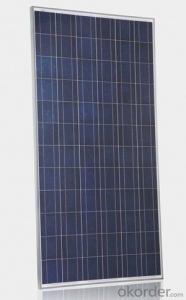Solar water heaters are a fantastic way to heat your home in an eco-friendly manner. They harness the power of the sun to provide hot water for your household needs, reducing your reliance on traditional energy sources and helping to lower your carbon footprint. Let’s dive into the world of solar water heaters and explore their benefits, how they work, and the different types available.
The Warm Embrace of the Sun: Understanding Solar Water Heaters
Solar water heaters are a type of renewable energy system that uses the sun’s energy to heat water. They can be a great addition to your home, providing a reliable source of hot water while also being environmentally friendly. The basic principle behind solar water heaters is simple: they collect solar energy and convert it into heat, which is then transferred to the water in your home.
A Breath of Fresh Air: The Environmental Benefits
One of the most significant advantages of solar water heaters is their environmental impact. By using the sun’s energy, you’re reducing the amount of fossil fuels needed to heat your water, which in turn reduces greenhouse gas emissions. This is a small but significant step towards a more sustainable future. Additionally, solar water heaters require less maintenance than traditional water heaters, which means fewer resources are used over their lifetime.
The Power of the Sun: How Solar Water Heaters Work
Solar water heaters work by using solar collectors to absorb the sun’s energy. These collectors can be mounted on your roof or placed in other sunny locations around your home. The energy collected is then used to heat a fluid, which can be a combination of water and antifreeze, depending on the system. This heated fluid is circulated through a heat exchanger, transferring the heat to the water in your home.
A Spectrum of Options: Types of Solar Water Heaters
There are several types of solar water heaters available, each with its own unique features and benefits. The most common types include:
– Active solar water heaters: These systems use pumps and controls to circulate the heat-transfer fluid. They are more efficient and can be more expensive than passive systems.
– Passive solar water heaters: These systems rely on natural convection and don’t require pumps or controls. They are generally more affordable but may not be as efficient.
– Evacuated tube collectors: These collectors use a series of tubes to maximize the absorption of solar energy. They are highly efficient and can work well in colder climates.
– Flat-plate collectors: These collectors use a flat surface to absorb solar energy. They are more versatile and can be used in a variety of climates.
The Art of Installation: Setting Up Your Solar Water Heater
Installing a solar water heater can be a straightforward process, but it’s essential to work with a professional to ensure it’s done correctly. The installation process typically involves:
1. Assessing your home’s energy needs and available space.
2. Choosing the right type of solar water heater for your situation.
3. Mounting the solar collectors in a location that receives ample sunlight.
4. Connecting the system to your home’s plumbing and electrical systems.
5. Testing the system to ensure it’s functioning correctly.
The Financial Upside: Cost Savings and Incentives
While the initial cost of a solar water heater can be higher than a traditional water heater, the long-term savings can be significant. Solar water heaters can reduce your energy bills by up to 50%, and with the right maintenance, they can last for decades. Additionally, many governments and utility companies offer incentives, such as tax credits or rebates, to encourage the adoption of solar technology.
The Future Is Bright: Embracing Solar Water Heaters
As we move towards a more sustainable future, solar water heaters are an increasingly popular choice for homeowners looking to reduce their environmental impact. They offer a reliable, efficient, and eco-friendly way to heat your home’s water supply. With the right system and professional installation, you can enjoy the benefits of solar energy for years to come.
In conclusion, solar water heaters are a smart investment for any home. They not only provide a comfortable and consistent supply of hot water but also contribute to a healthier planet. By choosing solar, you’re making a statement about your commitment to sustainability and embracing the power of the sun for your home’s comfort.

